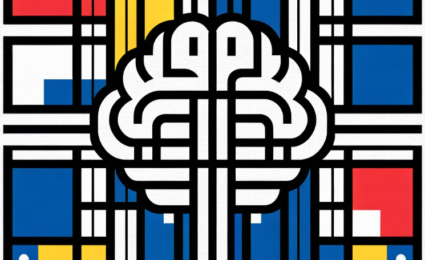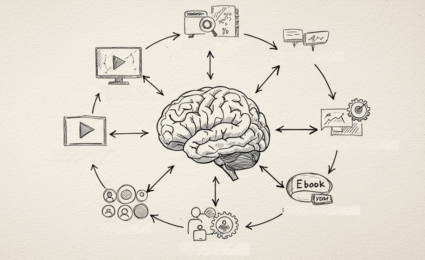Creating online courses? ChatGPT isn’t the panacea you think it is
I have noticed several LinkedIn posts centered on how new AI tools, particularly ChatGPT, can “make the course-creation process even faster.” When I read these, I can’t help but get a slight knot in my stomach.
Naturally, there is a lot of attention on tools like ChatGPT at present, and deservedly so. When used well, ChatGPT can prove to be a useful ally in creating course content and supporting materials like sales collateral.
But I have several problems with how tools like ChatGPT are positioned as a fantastic shortcut in the course-creation process. This all centers around the myth that “content” is at the heart of online learning.
Here’s why:
Content Supports, but Doesn’t Drive, Significant Change
Let me be clear. Online courses that have the greatest impact are not those that are centered around content or, more specifically, knowledge acquisition. Great change comes from taking action, getting feedback, reflecting, and taking more action.
Action is driven by experience-oriented programs, where “what you do” is more important than “what you learn.” Content plays an important role in scaffolding this process, but it’s not at the center.
Content-Oriented Products Are More Difficult to Sell
Unless you have a huge audience or are the first into a market, it can be difficult to sell courses based entirely around content. Just check out the low price point of any course sold on course marketplaces like Udemy or FutureLearn.
Content-based courses are seen as a commodity and are priced as such. It’s a race to the bottom, and if you’re not #1, it’s hardly worth being in the game.
Content Is Easy to Replicate
This ties into my second point. If your online course simply resembles some stylized content behind a username and password, then good luck. It’s very easy for anyone to repurpose your intellectual property in other guises.
Experiences, for example, where you form a community of people to learn together, are much harder to create and replicate. When designed well, these can have a transformative effect on the impact of your program too.
So How Can AI Help?
That being said, there are several useful ways AI tools like ChatGPT can be used in education to enhance the learning experience – they are just not focused on creating learning content more rapidly.
Instead, think of personalization, where tools can be used to better understand your existing competencies and prior learning and serve up learning materials tailored specifically for you.
Or self-directed learning, where (with the right understanding of how prompts work), people can use ChatGPT to generate their own learning materials.
ChatGPT more specifically can be useful to create a course outline and make sure you’ve not missed any blind spots in the breadth of your course content. But this needs careful scrutiny. It’s easy to pack a course with “nice-to-have” content that doesn’t ultimately help the learner get closer to their intended outcome. Cathy Moore’s action mapping technique is a useful approach to ensure this doesn’t happen.
If you’re interested in learning more about the role AI can play in this space, Dr. Philippa Hardman‘s writings are a good place to start. Alternatively, check out Donald Clark’s book “Artificial Intelligence for Learning.”
Don’t get us wrong, we’re really excited to see how AI tools can support learning experiences and think they’ll play a key role in the future. We just don’t think expediting the process to create bad e-learning is the success story it’s made out to be. 😉
Fresh insights direct to your inbox
Join the Candle Digital mailing list




